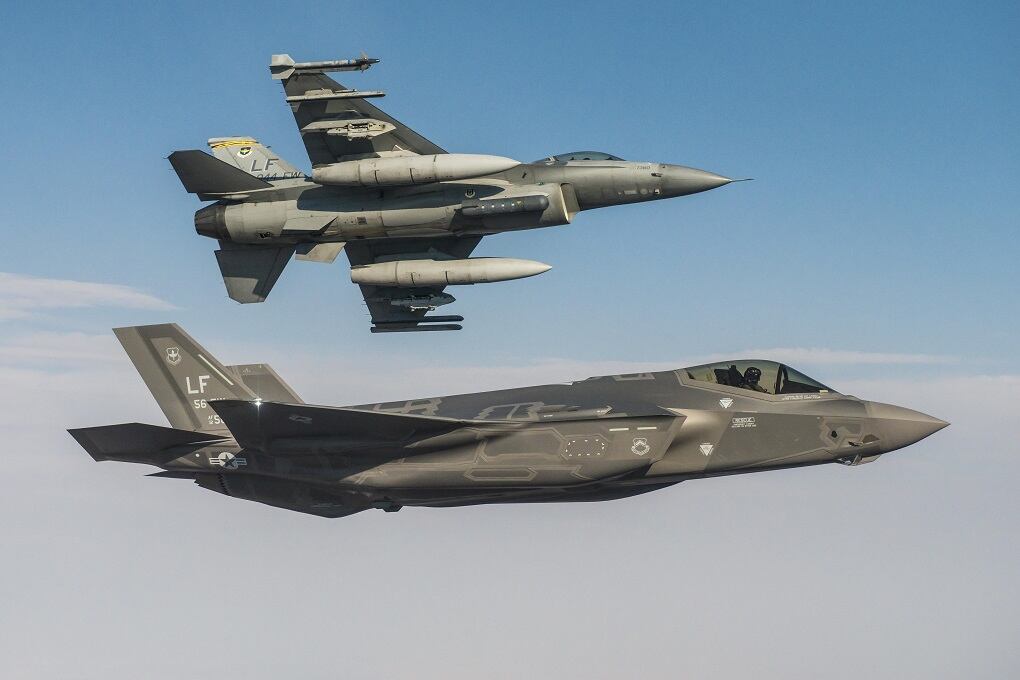WASHINGTON — The Pentagon has suspended acceptance of most F-35 deliveries as manufacturer Lockheed Martin and the F-35 program office debate who should be responsible for fixing jets after a production issue last year.
“While all work in our factories remains active, the F-35 Joint Program Office has temporarily suspended accepting aircraft until we reach an agreement on a contractual issue and we expect this to be resolved soon,” a Lockheed spokeswoman confirmed in a statement, adding that the company remains confident that it can meet its delivery target of 91 aircraft for 2018.
News of the delivery pause was first reported by Reuters.
The dispute is rooted in a quality control issue that caused F-35 deliveries to stop from Sept. 21 to Oct. 20. At the time, corrosion was found in fastener holes of F-35As being repaired at Hill Air Force Base in Utah.
Lockheed and the JPO were able to agree on a corrective action plan, one source said, and Lockheed was able to complete planned deliveries of the F-35 for 2017.
But sometime after that, a dispute over who should pay for the fix resurfaced and the Defense Department opted to take another production pause, a source said, declining to comment on how long deliveries have been suspended.
“Per the direction of the program executive officer, F-35 deliveries have been temporarily paused while the government and Lockheed Martin reach an agreement on a contractual issue regarding repair work to remediate the known aircraft fastener hole primer quality escape,” said a statement from the F-35 joint program office.
“This is not a safety of flight issue but rather a contractual resourcing issue that needs to be resolved. The government has implemented this pause to ensure the warfighter receives a quality product from industry. We look forward to a swift resolution of this issue.”
Production of the aircraft is ongoing at Lockheed’s line in Fort Worth, Texas, and at final assembly and check out facilities in Nagoya, Japan, and Cameri, Italy. A source noted that some customers have accepted planes due to warfighter demands.
According to Reuters, two aircraft have been delivered to the Defense Department since it imposed the suspension. Meanwhile, a repair bill for more than 200 jets is on the line.
The corrosion issue is just one of several production problems that has plagued the F-35 over the last couple years.
Vice Adm. Mat Winter, the F-35 joint program executive officer, spoke Wednesday at the Navy League’s Sea Air Space conference but did not disclose the fact that deliveries had stopped.
A statement from the F-35 joint program office was added at 9:05EST on April 12.
Valerie Insinna is Defense News' air warfare reporter. She previously worked the Navy/congressional beats for Defense Daily, which followed almost three years as a staff writer for National Defense Magazine. Prior to that, she worked as an editorial assistant for the Tokyo Shimbun’s Washington bureau.









